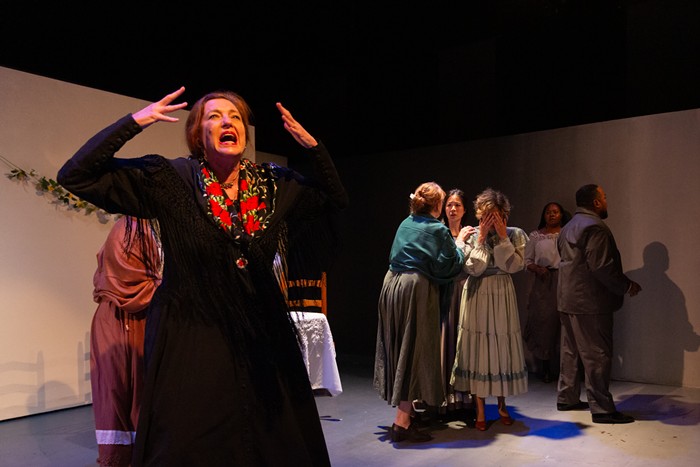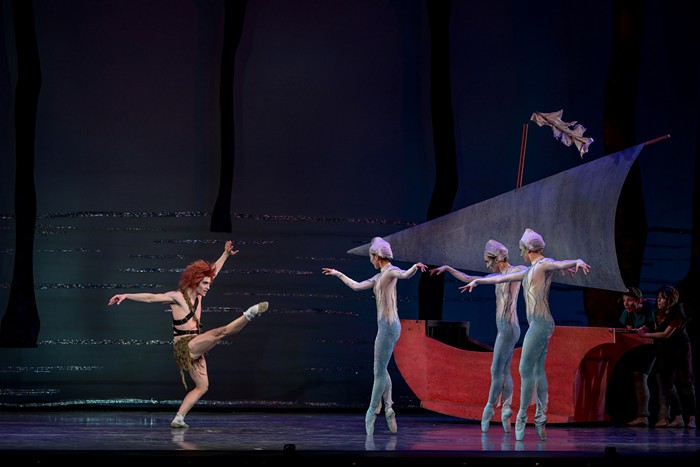IT'S EASY to imagine reading the script for Boleros for the Disenchanted—enjoying the lighthearted, flirtatious tale of two young people meeting and falling in love in 1950s Puerto Rico, picturing the dresses and the music, envisioning a romance that culminates in a wedding and the announcement of big plans to move to America. It's a fun, frothy love story, with enough wicked wit to keep it grounded—and then you turn a few more pages, and suddenly everything changes.
The action has jumped 30-plus years in the future; our promising young couple is old and married and living in Alabama, and we abruptly find out just where those American dreams got them.
If you were reading this text, this is the moment where you'd put the script down for a minute to take a breath, maybe pour yourself a glass of water or something stronger, and think about the trick playwright José Rivera just played on you, how this isn't the story you thought it was after all.
But the blessing and curse of live theater is that you can't put it down and you can't turn it off; so there's no collecting yourself during the Miracle Theatre's production of Boleros. The second half of the show is an absolute gut wrencher, in large part because it stands in such contrast to its frothy beginnings; and if I felt a little bit emotionally manipulated by Rivera—by the loneliness and sadness he subjects his characters to, by some of the ways in which he forces his characters toward crucial realizations—well, I still went through half a package of tissues.
Boleros has a lot to say about hope and optimism, about hard work and its rewards, and about how empty the promises of the land of opportunity often are. But its primary concern is the reality of "forever" versus the ease with which young couples pledge it at the altar—and under the direction of Antonio Sonera, this is communicated with humor and spirit that only occasionally tips toward the outright maudlin.
Flora and Eusebio (played by Kylie Clarke Johnson and Logan Loughmiller in the first half, and Luisa Sermol and Ted Schulz in the second) are young and in love when they marry, and over the course of their long marriage, that love is tested by challenges that all of us will, at some point, experience—financial insecurity, sickness, loneliness, infidelity. And if it seems like they get hit with an unfair share of all of the above, well, that's how it goes for some people; and sometimes, as Rivera points out, family and religion aren't quite the comforts we might expect.
The cast comfortably juggles multiple roles—the young couple ages into their parents; a smarmy Puerto Rican hustler is reborn as a US soldier decades later. Sermol and Schulz do the second half's heavy lifting without succumbing too much to sentimentality, retaining a spark of defiance that's always grounded in humor. The role-swapping performances allow the show's universal themes to emerge—it'll undoubtedly prompt people to mull over their own relationships, their own expectations. And if it seems determined to break your heart a little bit along the way, there's no pressing "pause"—you're just going to have to bring a pack of tissues, and be prepared to let it.



















